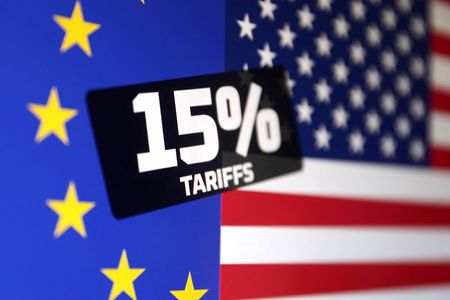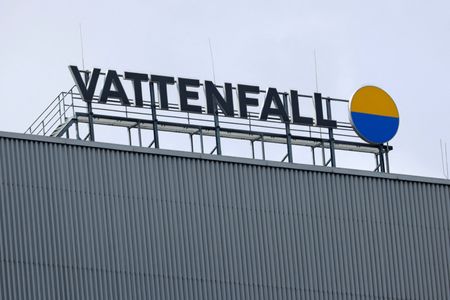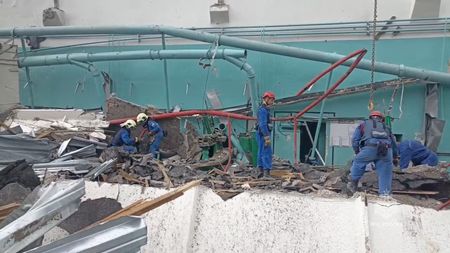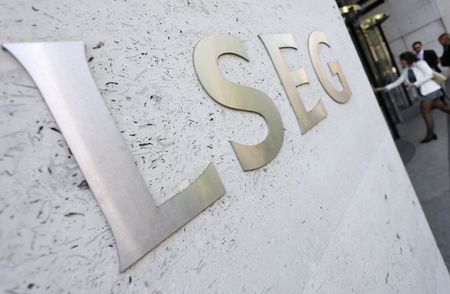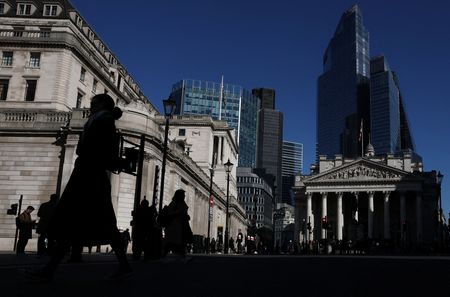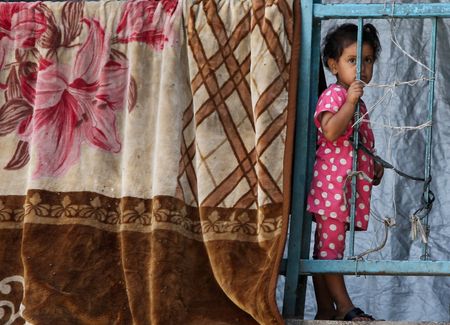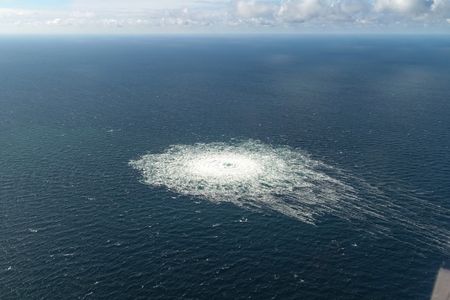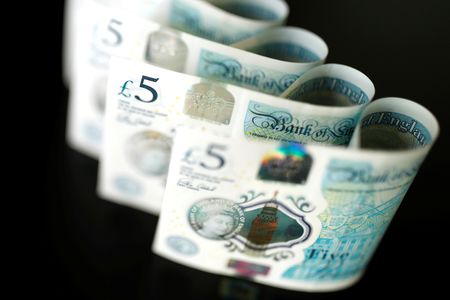By Jan Strupczewski and Karol Badohal
BRUSSELS (Reuters) -European Union finance ministers expressed interest on Saturday in the idea of a joint defence fund that would buy and own defence equipment, but some also said the EU should first look at existing financing options before creating new ones.
The discussion is part of a European effort to prepare for a potential attack from Russia as EU governments realise they can no longer fully rely on the United States for their security.
The ministers were discussing an idea, prepared by the Bruegel think tank, that a group of EU and non-EU countries could set up an intergovernmental fund, with paid-in capital, that would borrow on the market, and jointly buy and own expensive military gear.
The participation of non-EU countries is important to many in the bloc because it would allow for the involvement of defence powerhouse Britain, as well as Norway, Canada or Ukraine.
The fund, called the European Defence Mechanism, would be a way of addressing concerns of highly-indebted countries, because the debt incurred to pay for the equipment would be on the EDM’s books, rather than on national accounts.
“Most ministers were interested in the Bruegel paper,” said Polish Finance Minister Andrzej Domanski, who chaired the talks.
Some countries such as France, Germany and Belgium said, however, that the EU should first look at existing instruments, like the European Investment Bank, the European Defence Fund and the ReArm Europe plan before new instruments are created.
Under the ReArm Europe plan, the EU is looking to boost military spending by 800 billion euros ($876 billion) over the next four years, via loosening fiscal rules on defence investment and joint borrowing for large defence projects against the EU budget.
REARM EUROPE FIRST, THEN MAYBE EDM
Domanski said finalising work on the 800-billion-euro package was a priority, but that most finance ministers agreed additional tools could be needed – like the Bruegel proposal.
“The reaction to the Bruegel proposal was generally positive,” one senior EU finance official taking part in the meeting said. “There was recognition that ReArm needs to be approved ASAP and then to develop things more along the lines in the Bruegel paper,” the official said.
“But of course ironing out the details requires that we closely work with Ministries of Defence,” the official said.
Bruegel said the EDM fund could focus on “strategic enablers” – costly military infrastructure and equipment armies need to operate – now often provided by the United States.
These include joint command and control systems, satellite-based intelligence and communication, development of expensive new weapon systems such as fifth- or sixth-generation fighter jets, integrated weapon systems needed by multiple countries like strategic air defence, strategic large-scale air transport and maritime logistics, missiles and nuclear deterrence.
The EDM would also promote a single European market for defence equipment to lower costs and pool resources.
Defence procurement and production in the 27-nation EU is highly fragmented with at least seven different types of tanks, nine types of self-propelled howitzers and seven types of infantry fighting vehicles, which increases costs, reduces interoperability and hinders economies of scale.
The Bruegel paper on the EDM said Europe had a chance to reduce its military dependence on the U.S. by 2030 only if it pooled procurement to the greatest extent possible and created a common European defence market including Britain as a major industrial defence player to boost competition.
Adding to the options, Spain proposed the creation of a temporary special purpose vehicle, financed by contributions from EU governments and open to non-EU members that could also issue joint European debt and have access to money in the European Stability Mechanism, the euro zone bailout fund.
The ministers also agreed that EU countries sharing a border with Russia and Belarus were more exposed to the threat of a Russian attack and therefore should benefit from a joint European effort to bolster defence capabilities.
“This is the time for European solidarity to support Ukraine and Eastern frontline countries. We need to invest together in defence, which is a genuinely European public good that benefits our citizens and bolsters our economic security,” said Spanish Finance Minister Carlos Cuerpo.
($1 = 0.9128 euros)
(Reporting by Jan Strupczewski. Additional reporting by Anna Wlodarczak-Semczuk. Editing by Mark Potter)



